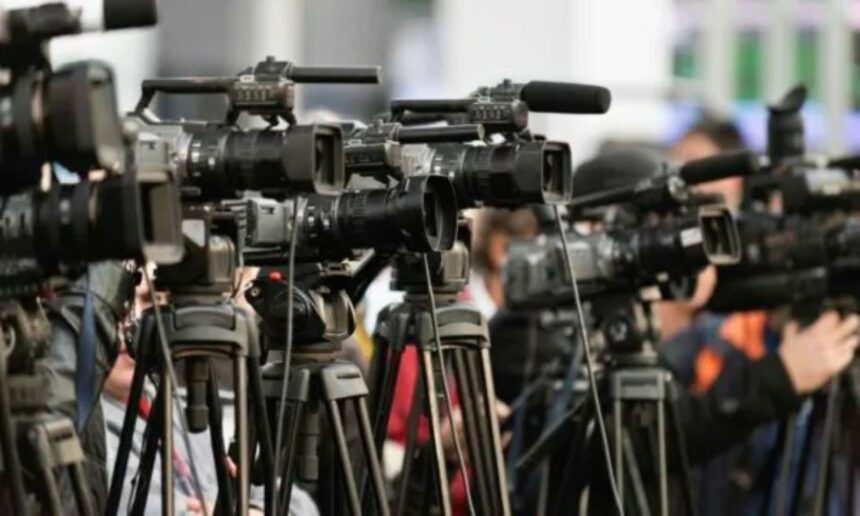Serbia has been included in the list of countries experiencing the greatest decline in freedoms over the past decade, according to a new report by the international organization Freedom House.
The U.S.-based organization, which documents the state of human rights and freedoms worldwide, identifies the Serbian government as the primary factor behind the erosion of freedoms in the country.
“Under the leadership of President Aleksandar Vučić and the Serbian Progressive Party (SNS), Serbia serves as a striking example of how elected leaders have systematically undermined the media,” the report states.
Sasha Mirković, a founder of the Association of Independent Electronic Media (ANEM), told Radio Free Europe that the findings were expected.
“Serbia is an example of a country where the government fundamentally weakens the media. In the report, Serbia is grouped with El Salvador and Venezuela, as a country that has seen a continuous decline in freedom over an extended period,” he said.
The “Freedom in the World 2025” report highlights that some of the largest declines in freedoms over the past 19 years have been recorded in El Salvador, Serbia, and Venezuela, where leaders have persistently dismantled democratic institutions, reinforcing authoritarian rule.
Among the countries experiencing the steepest declines, Serbia ranked seventh, following Nicaragua, Tunisia, El Salvador, Tanzania, Niger, and Hong Kong—making it the European country with the most significant deterioration in freedoms.
Since 2019, Freedom House has categorized Serbia as “partly free,” marking it in yellow in its reports. The Serbian government and presidency have not responded to requests for comment.
Media Control Tightening, Attacks on Journalists
Freedom House cites increased media control and attacks on journalists as key reasons for the decline in freedom in Serbia.
“Investigative journalists have faced smear campaigns, fines from tax inspectors, threats from top politicians, and even arrests,” the report states.
The report also highlights that authorities have manipulated regulations to favor pro-government media, while a lack of transparency in media ownership and indirect government subsidies have enabled state-friendly media outlets to dominate the market.
Additionally, the use of Strategic Lawsuits Against Public Participation (SLAPPs) has been noted as a tool to intimidate independent media and journalists. These lawsuits, often filed by powerful individuals, lobbying groups, corporations, or government agencies, aim to censor, intimidate, and silence critics by burdening them with legal costs until they abandon their reporting.
Freedom House asserts that this environment has allowed pro-government coverage of Vučić and the SNS to overshadow other narratives, especially during elections, further silencing critical voices.
‘Captured Institutions’ and Public Protests
Sasha Mirković emphasized that both the Freedom House report and ongoing mass protests in Serbia point to institutional dysfunction and government control.
For over three months, students have been leading protests in several Serbian cities, demanding accountability from authorities following the deaths of 15 people in the collapse of a railway station canopy in Novi Sad.
Mirković argues that institutions responsible for media regulation have long ceased to function independently.
“Serbia has been operating without a functioning Council of the Regulatory Authority for Electronic Media (REM). The session to elect its members has not even been announced in Parliament,” he said.
REM, responsible for overseeing electronic media, issuing broadcasting licenses, and ensuring compliance with media laws, has been accused for years of serving government interests rather than fulfilling its regulatory role.
The mandate of REM’s council members expired on November 4, 2024, and the selection process for new members was marred by allegations of electoral irregularities, leading six candidates to withdraw in January 2025, citing violations of the electronic media law.
In a recent example of REM’s inefficiency, the agency published a report on media monitoring during the December 2023 elections over a year after they took place—further illustrating the systemic failures that contributed to Serbia’s poor ranking in the Freedom House report.
Escalating Threats Against Journalists
Serbia has also witnessed increasing attacks on independent journalists.
One of the latest incidents occurred on February 21, when unknown individuals broke into the offices of the Independent Journalists’ Association of Vojvodina (NDNV) in Novi Sad.
Previously, the association had reported threats and attacks, including death threats in December 2024. The regional Safe Journalists network stated on February 26 that “attacks on journalists in Serbia continue” and urged authorities to stop targeting media professionals.
Serbia’s Declining Freedom Rankings
Freedom House has repeatedly highlighted Serbia’s deteriorating political and civil liberties.
In 2023, the organization reported that the SNS-led government was eroding democratic freedoms through pressure on independent media, political opposition, and civil society organizations.
Reports have also detailed election manipulation, corruption, propaganda, media suppression, and the weakening of an independent judiciary—placing Serbia among the countries with the most significant decline in freedoms over the past decade.
While Serbian authorities have previously dismissed Freedom House’s reports as biased, international watchdogs continue to raise concerns over the country’s democratic backsliding and media repression.







